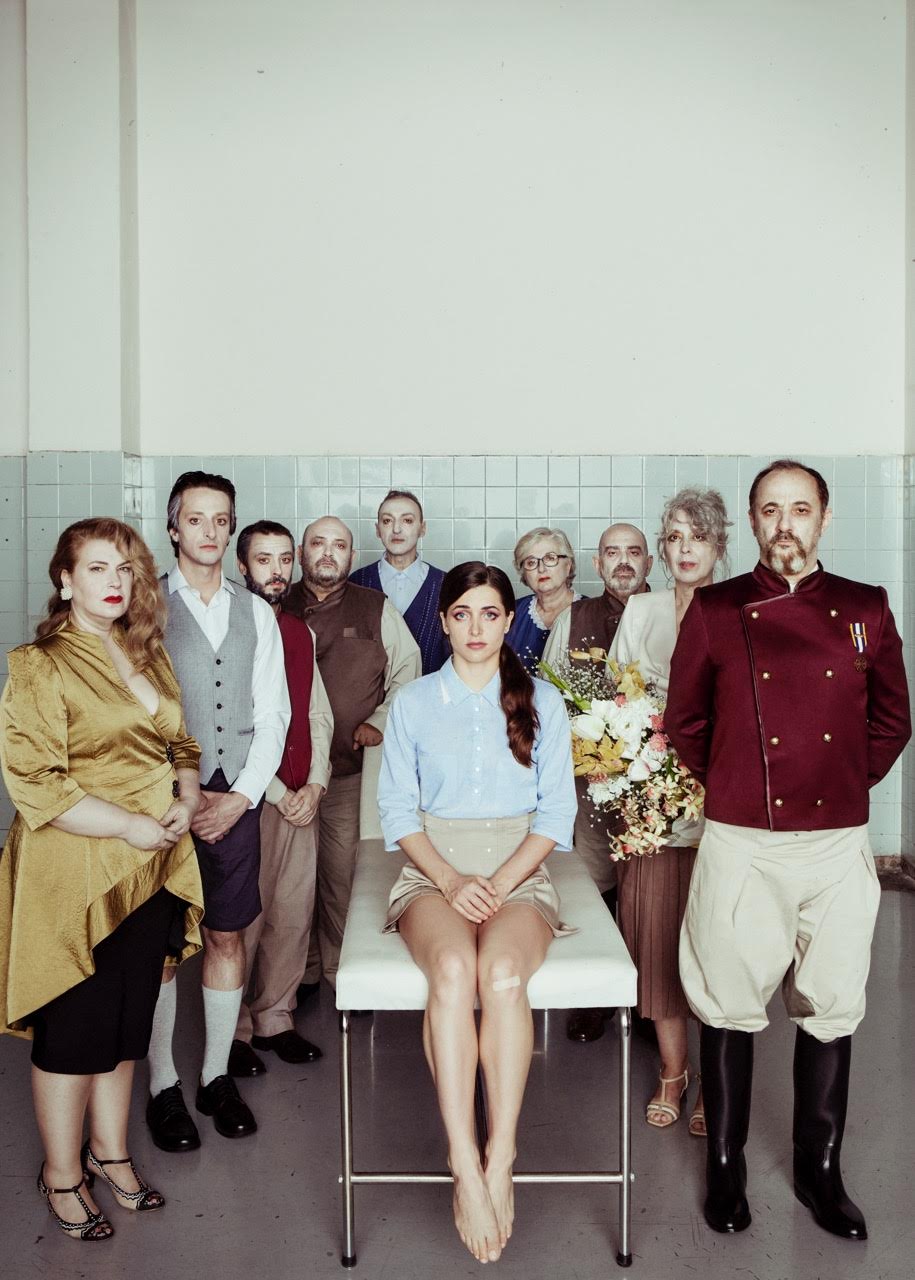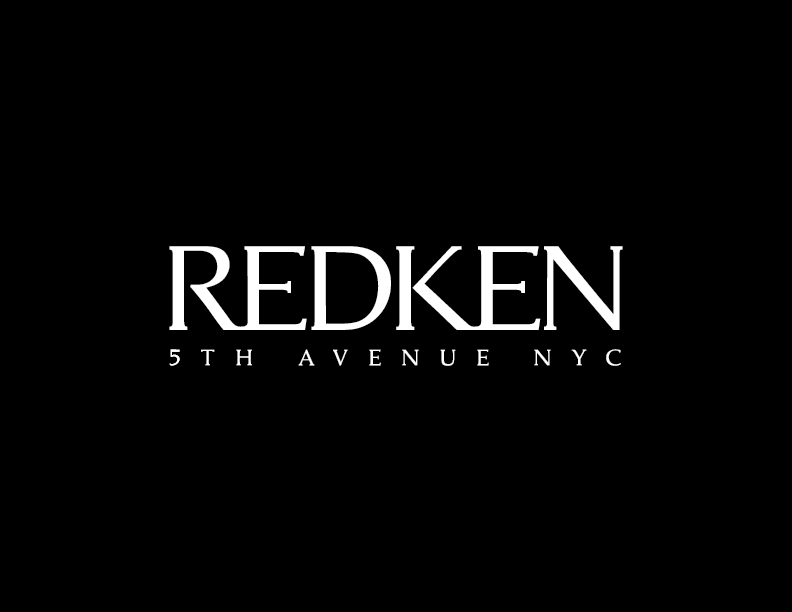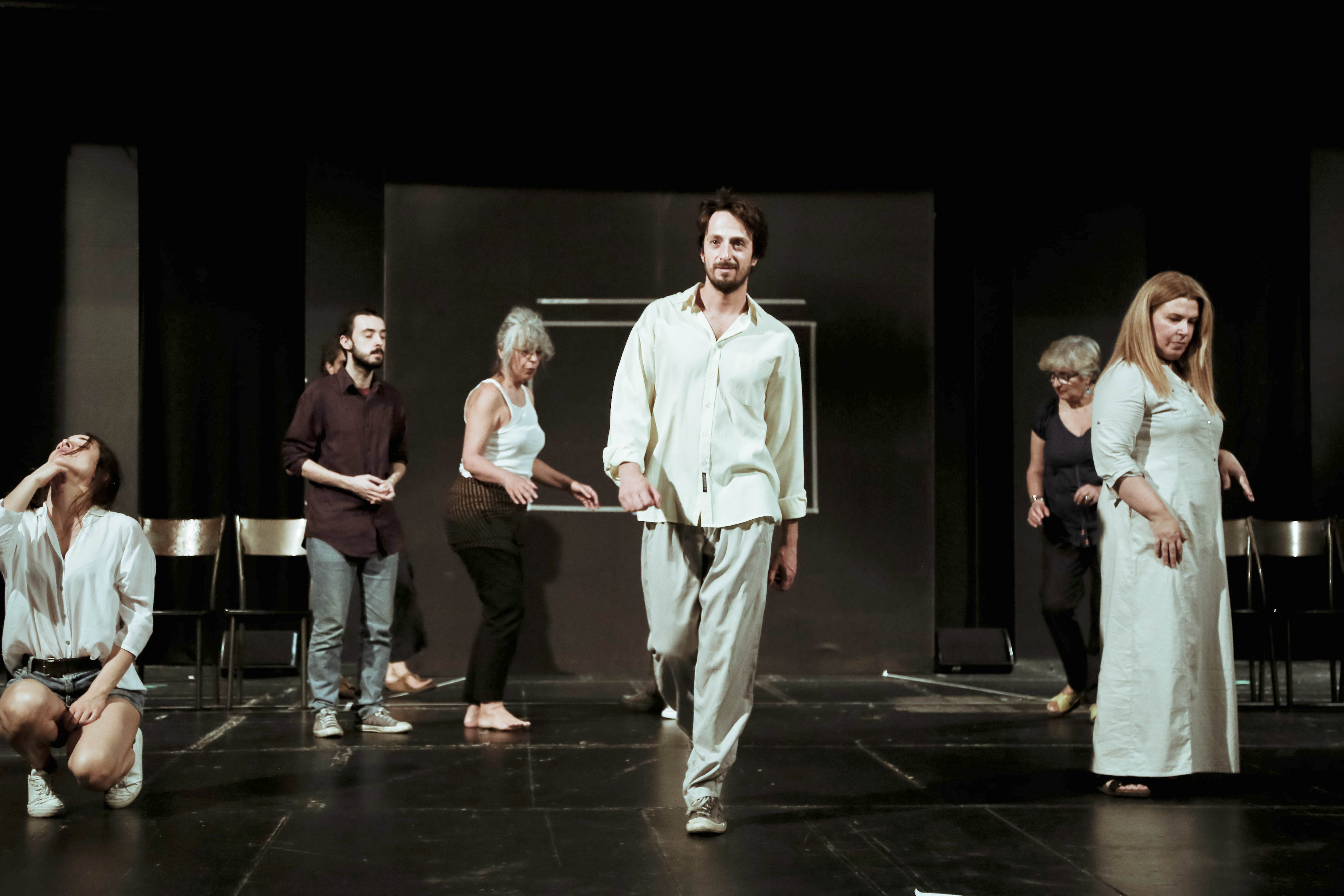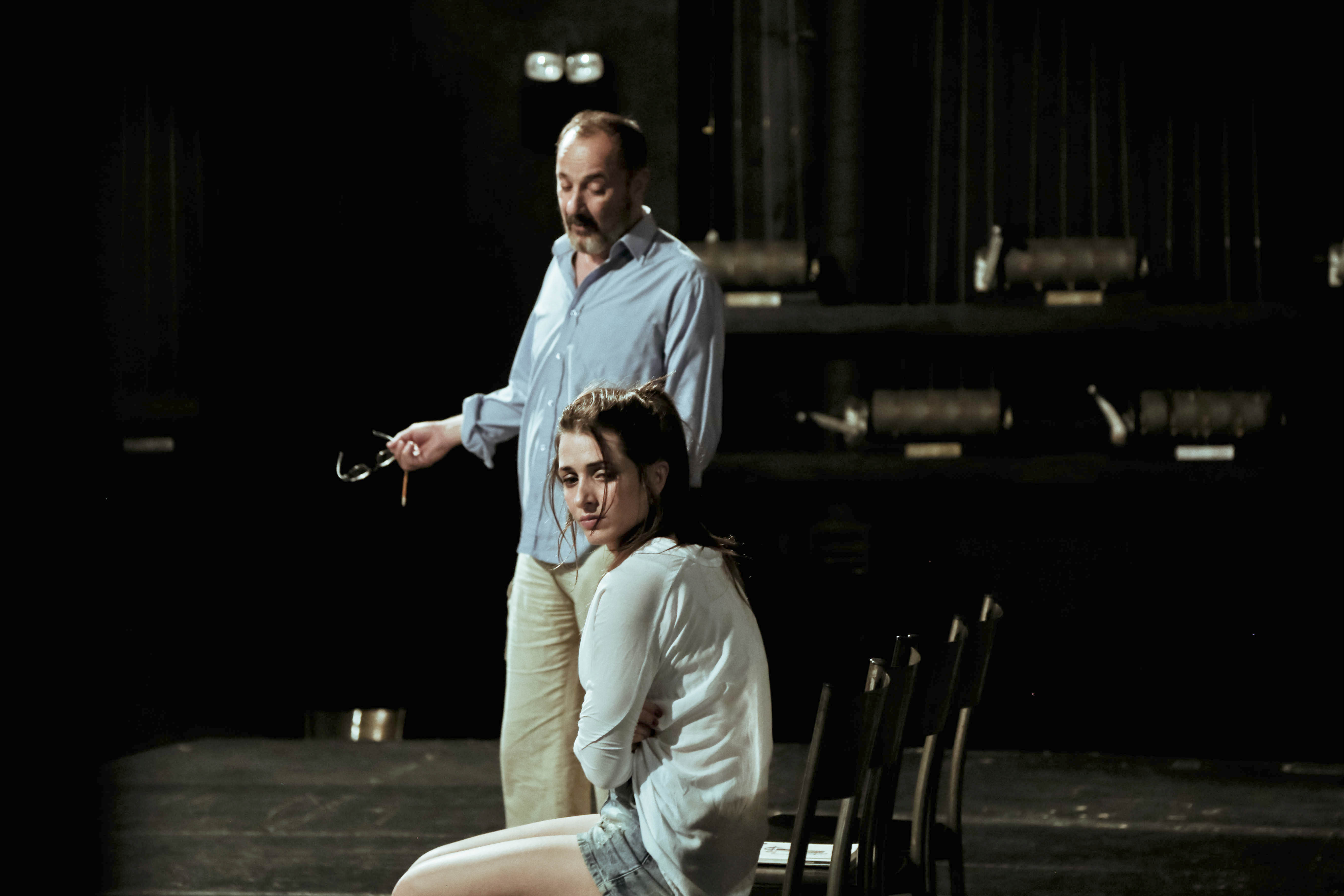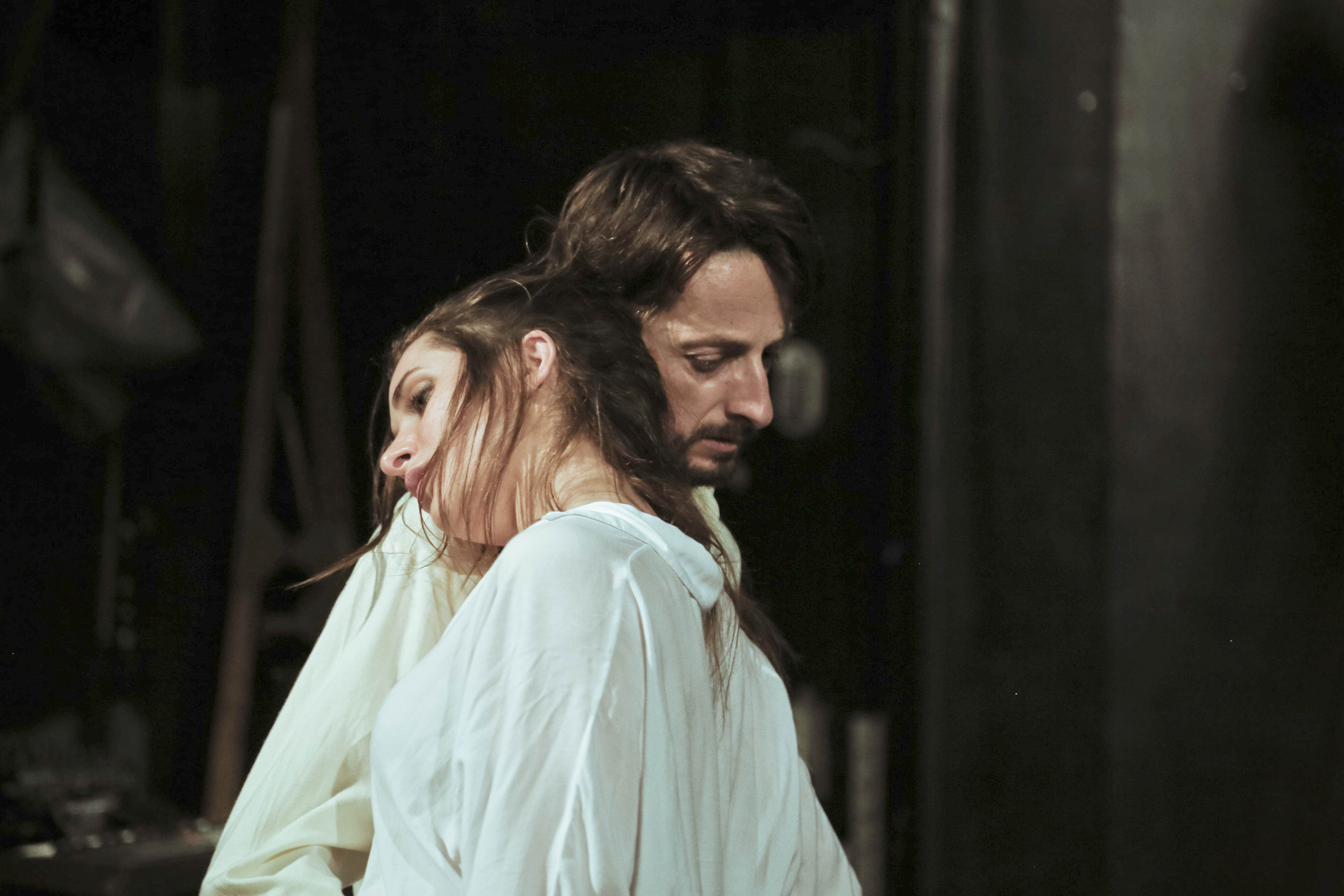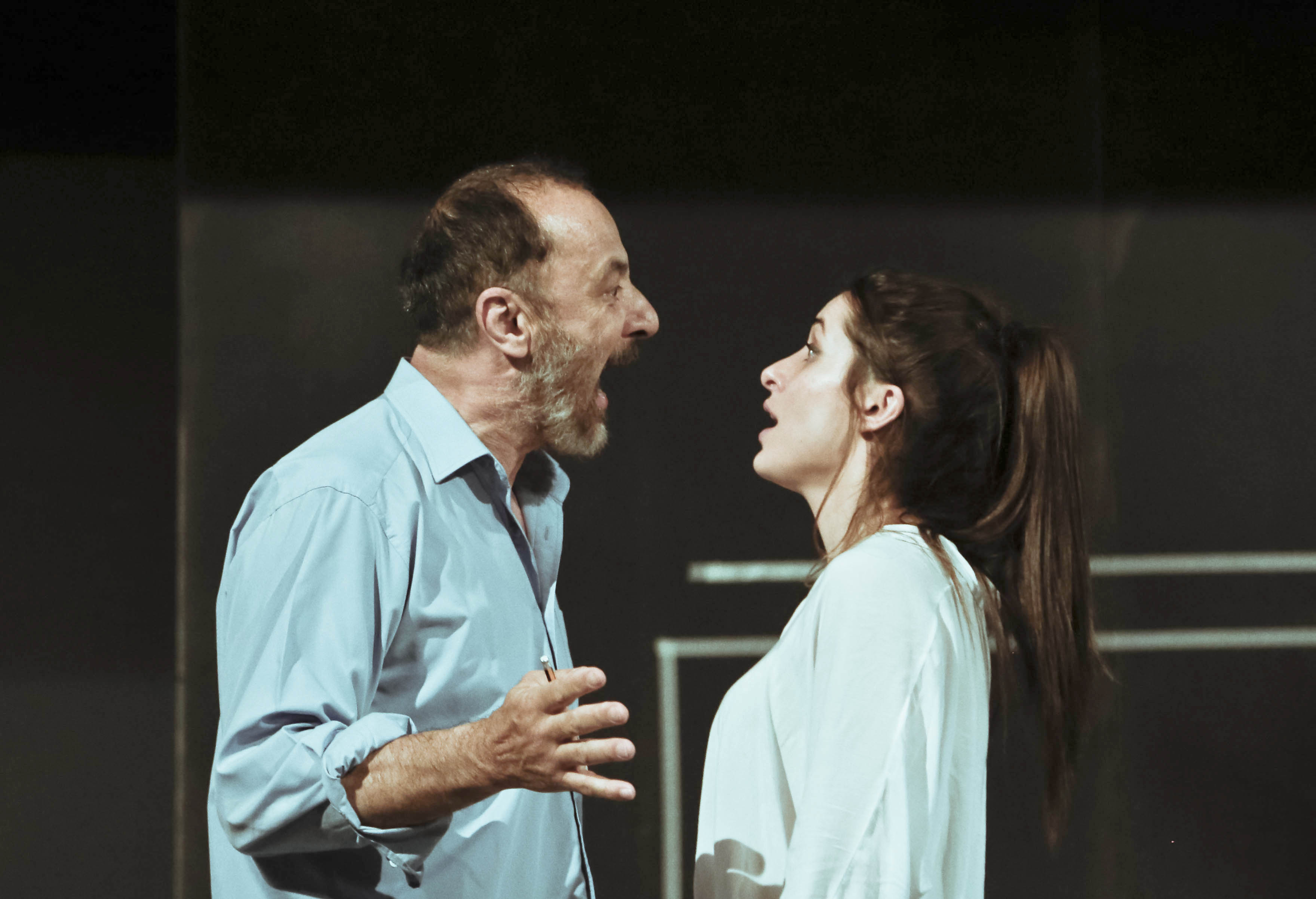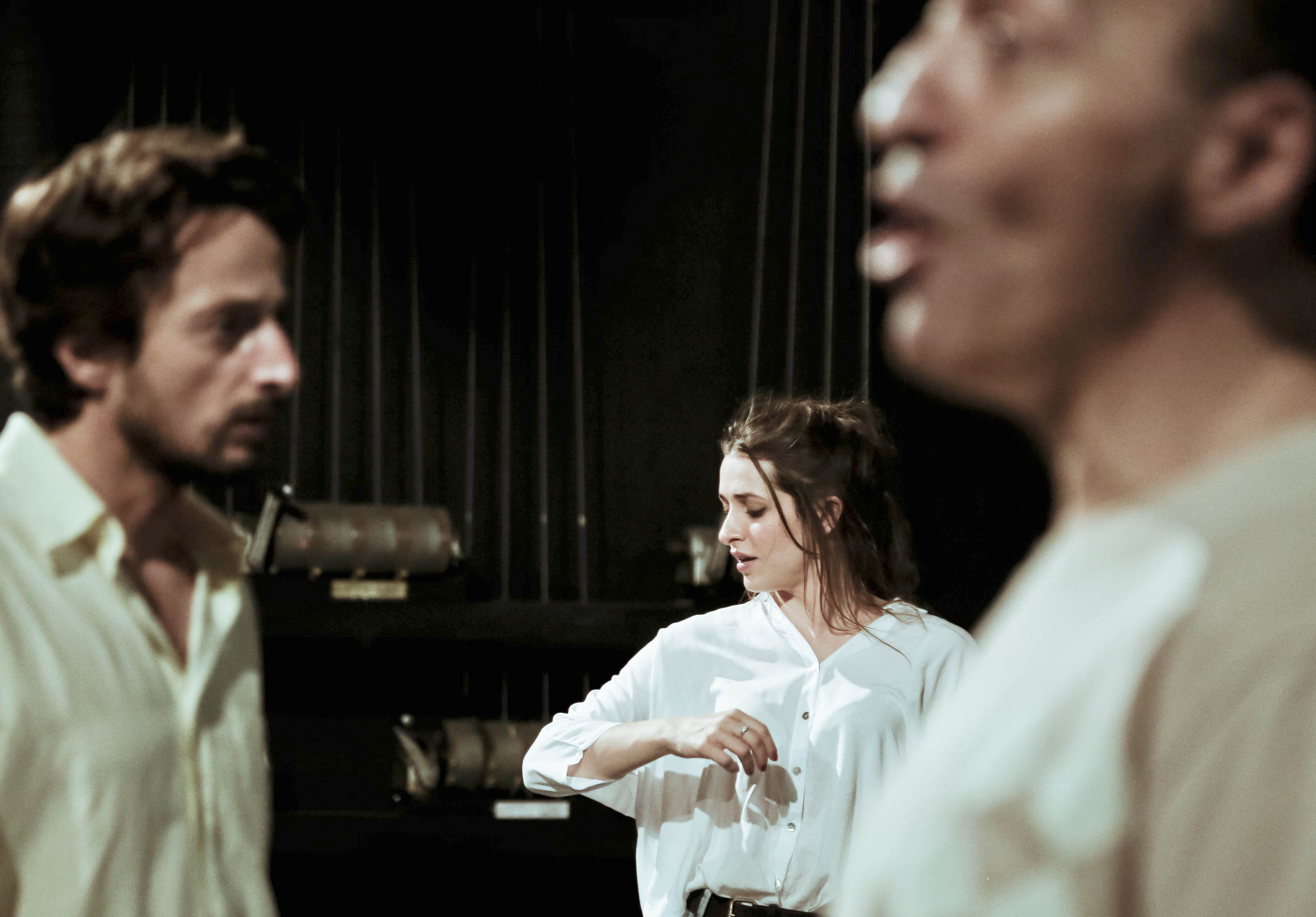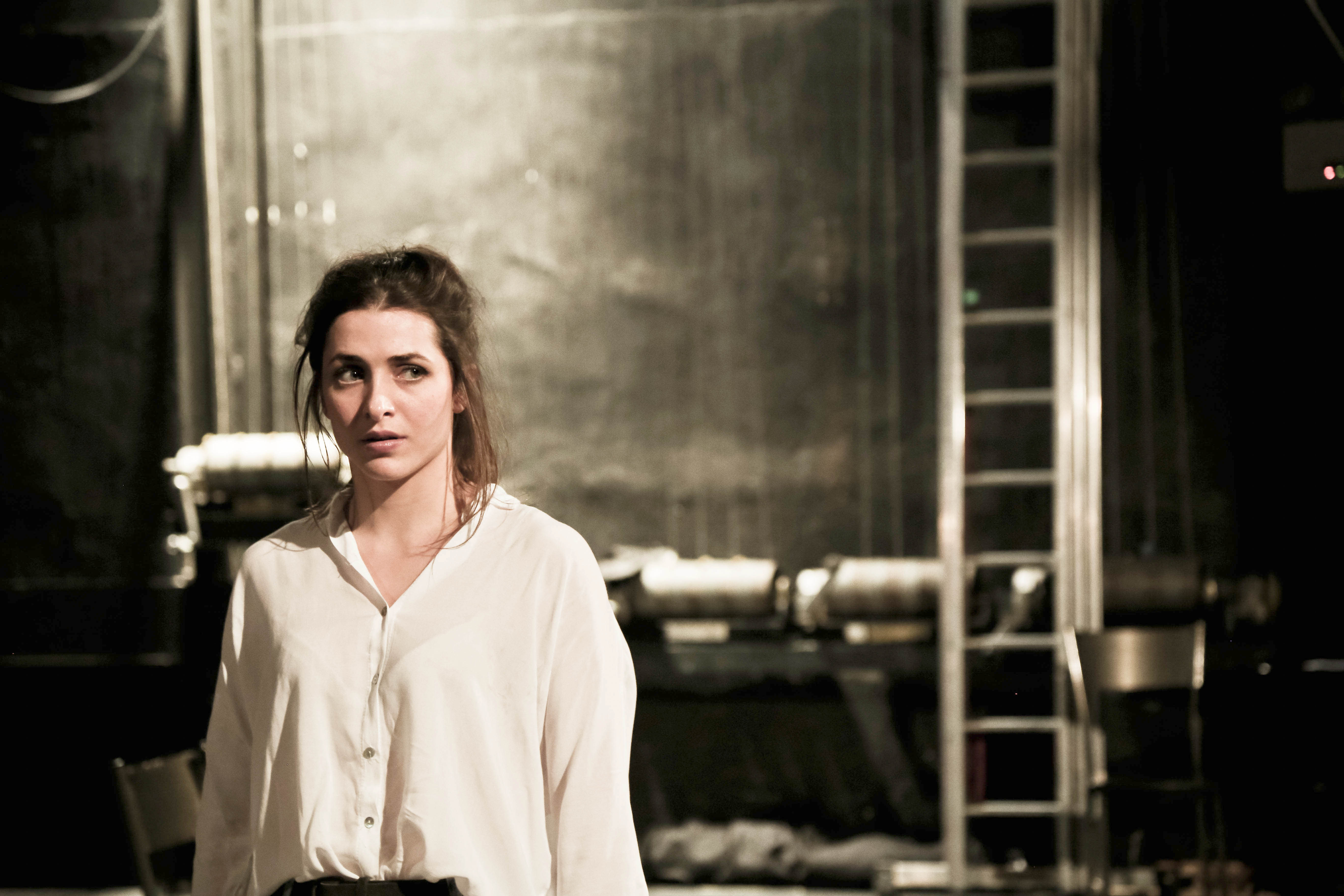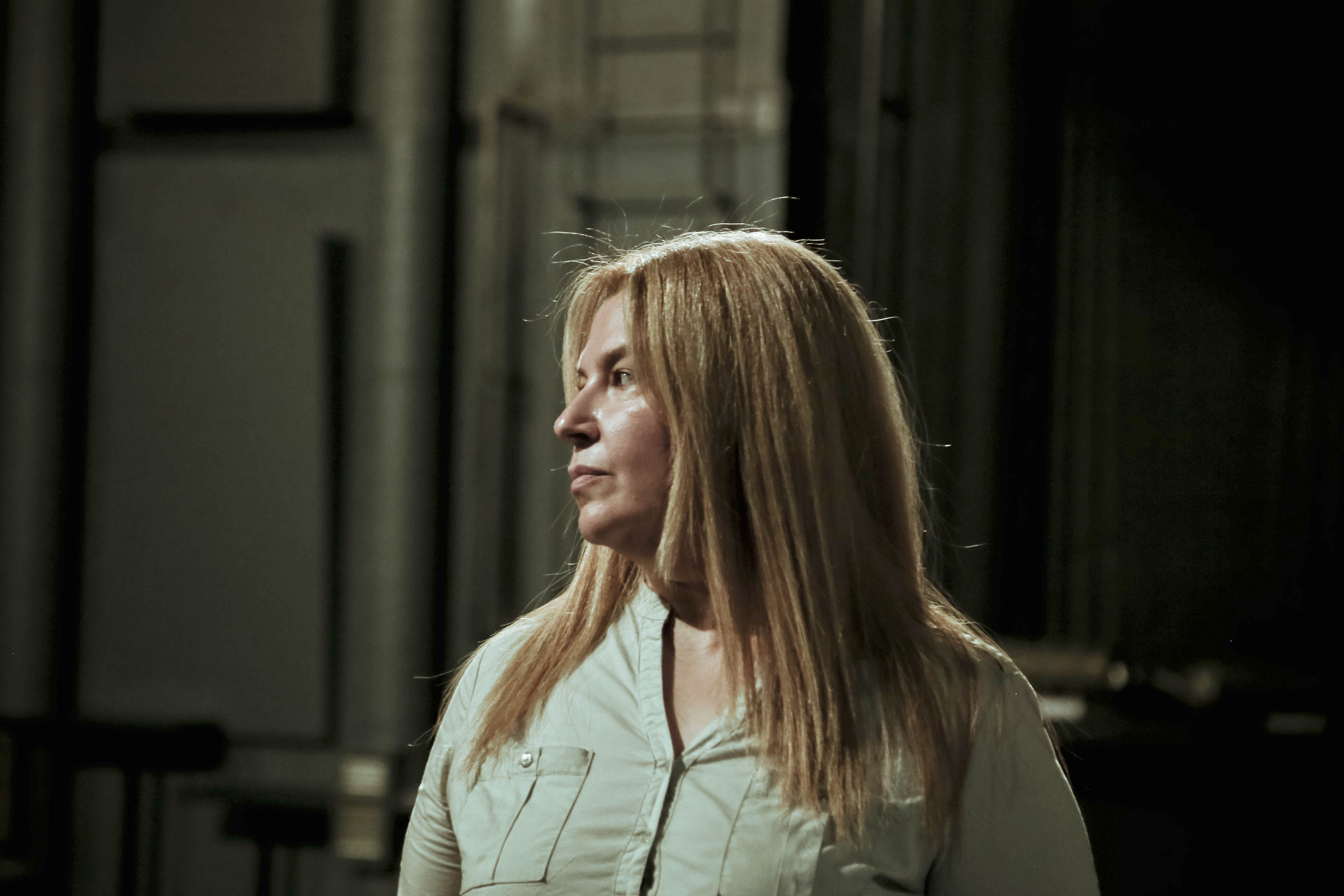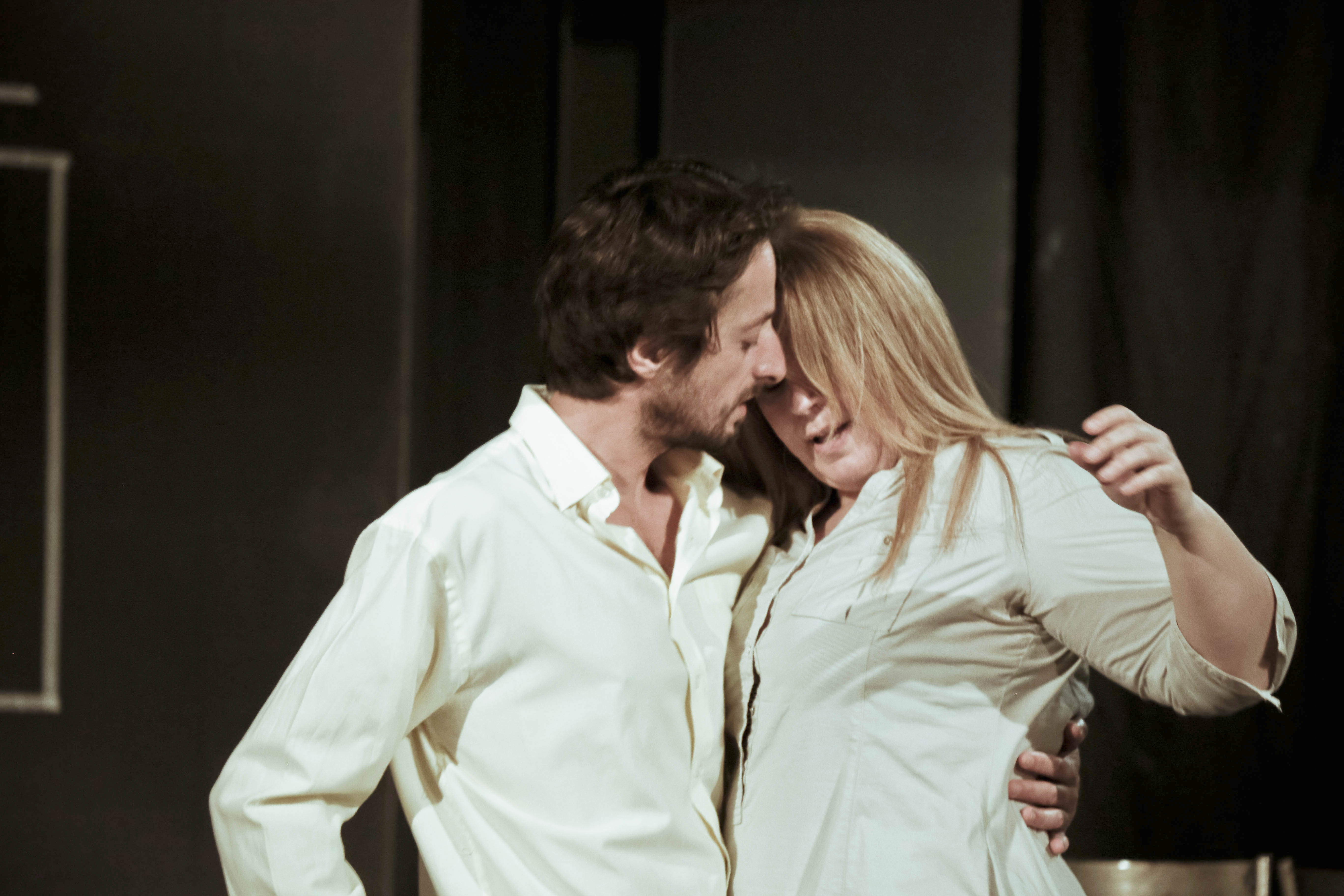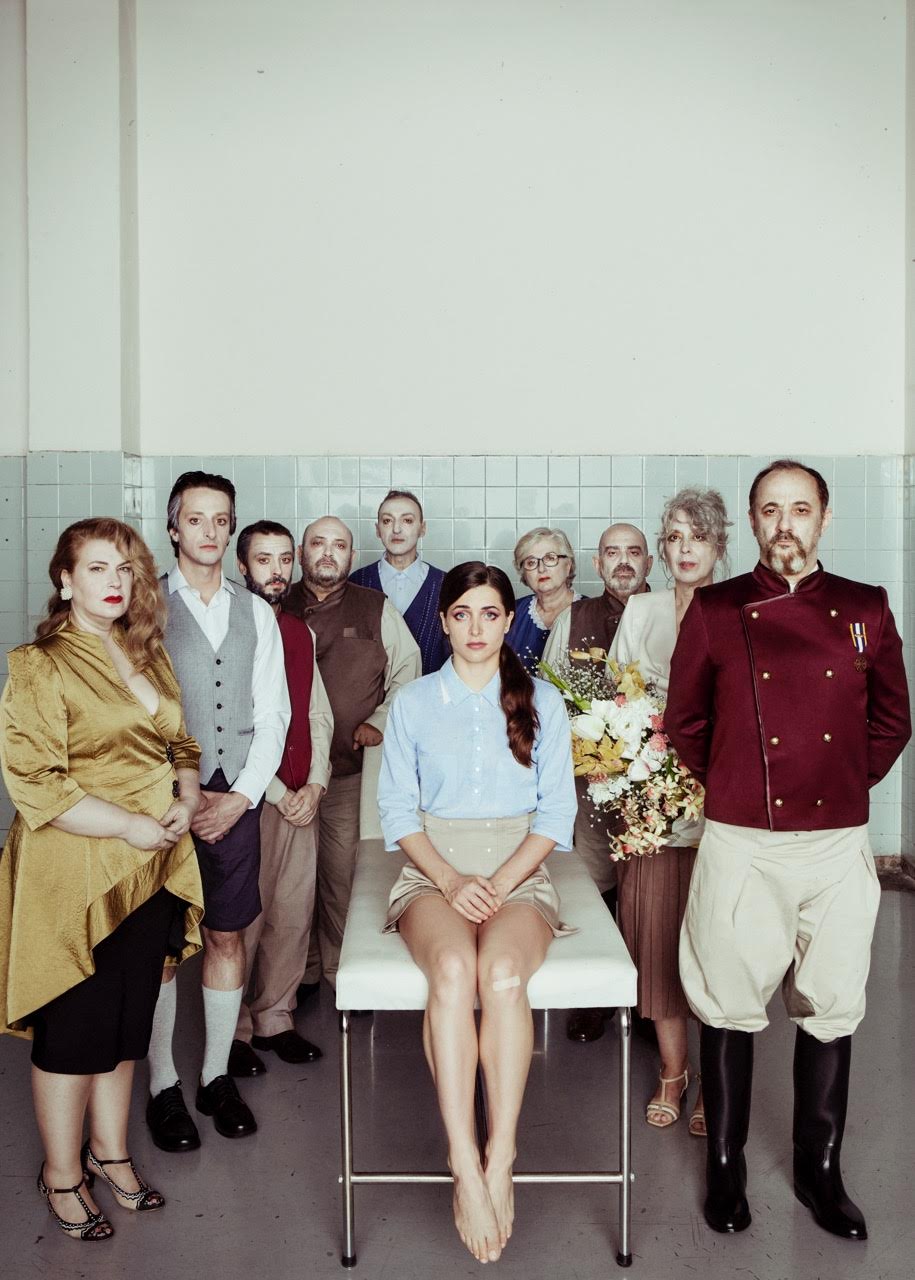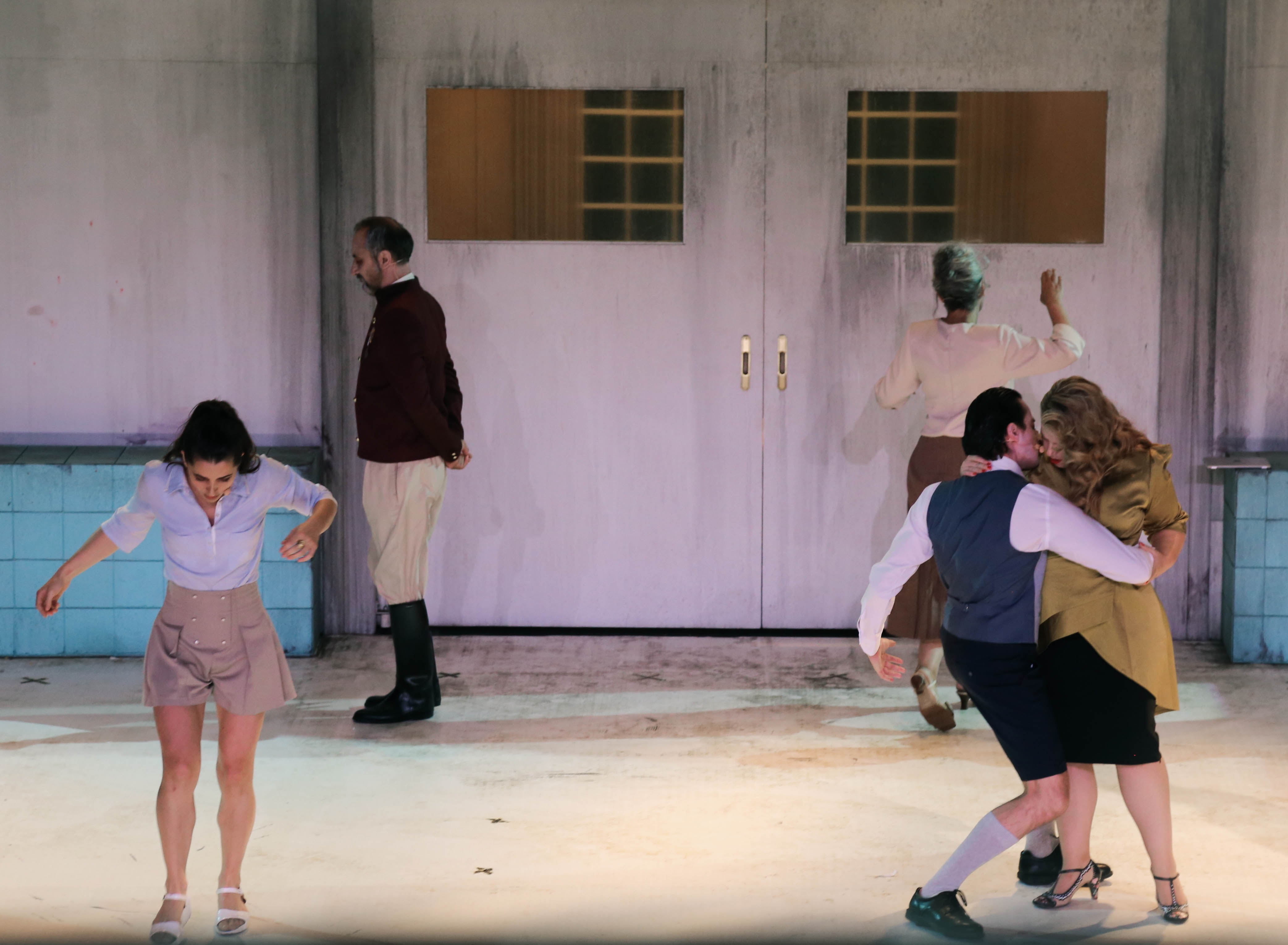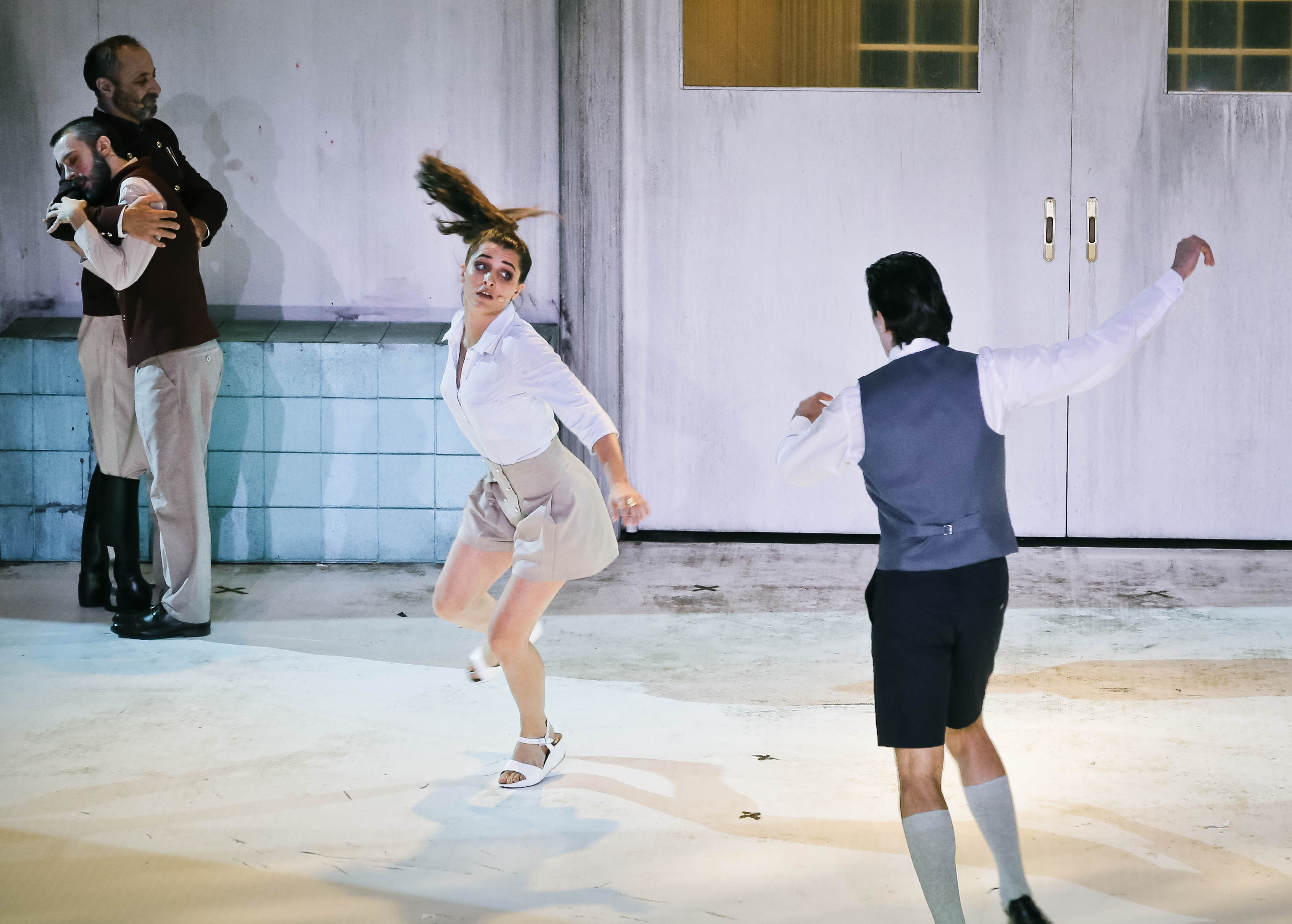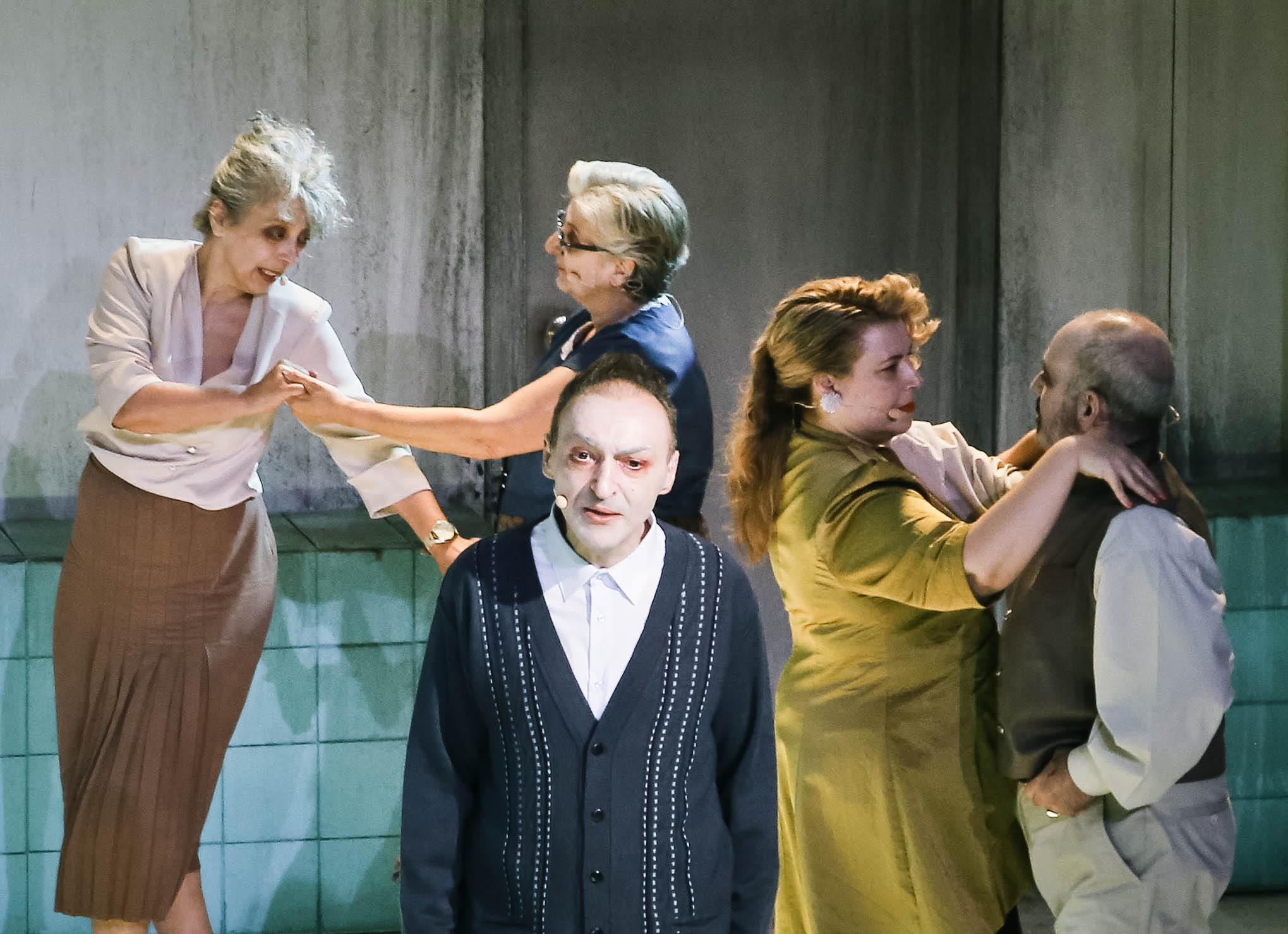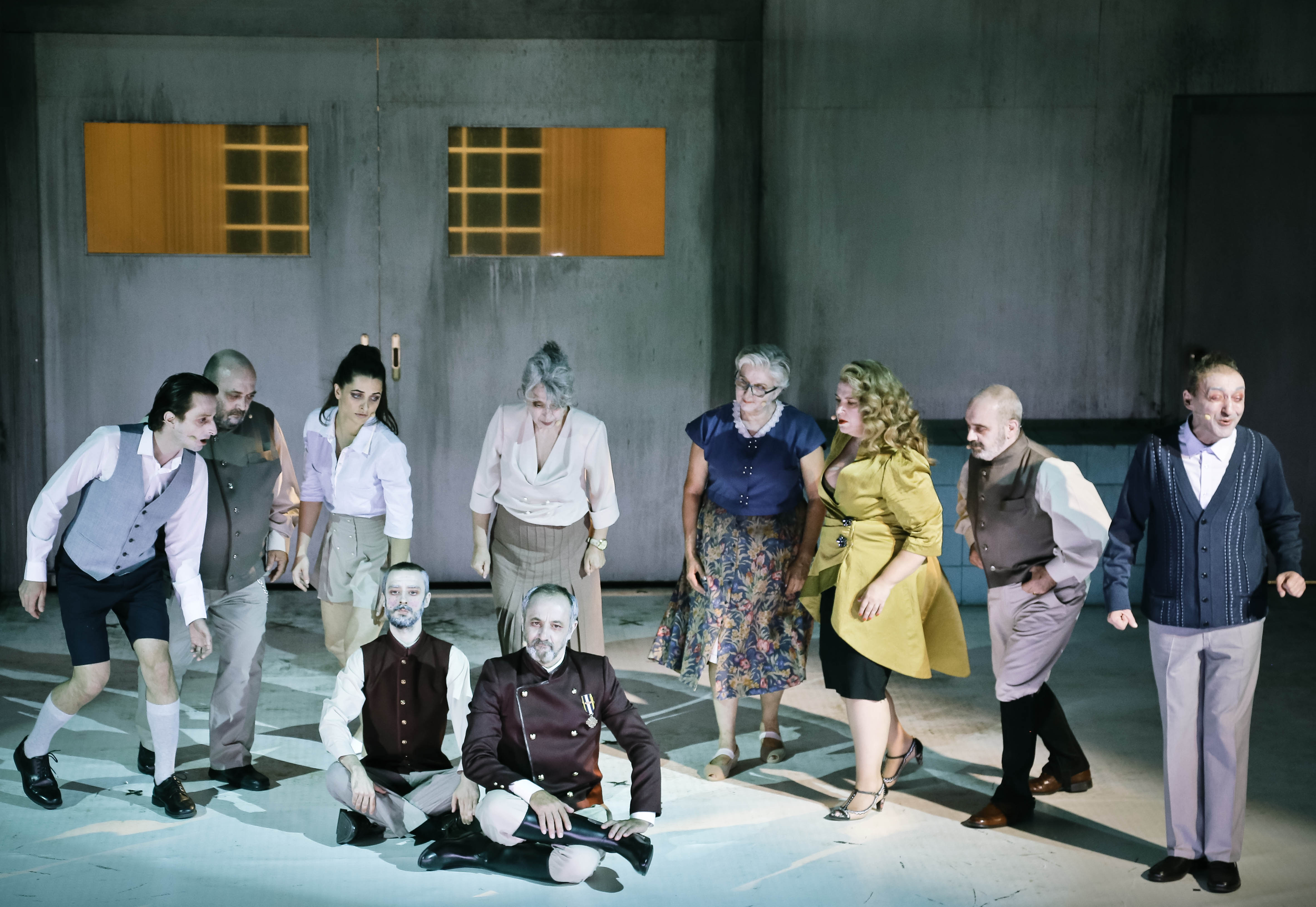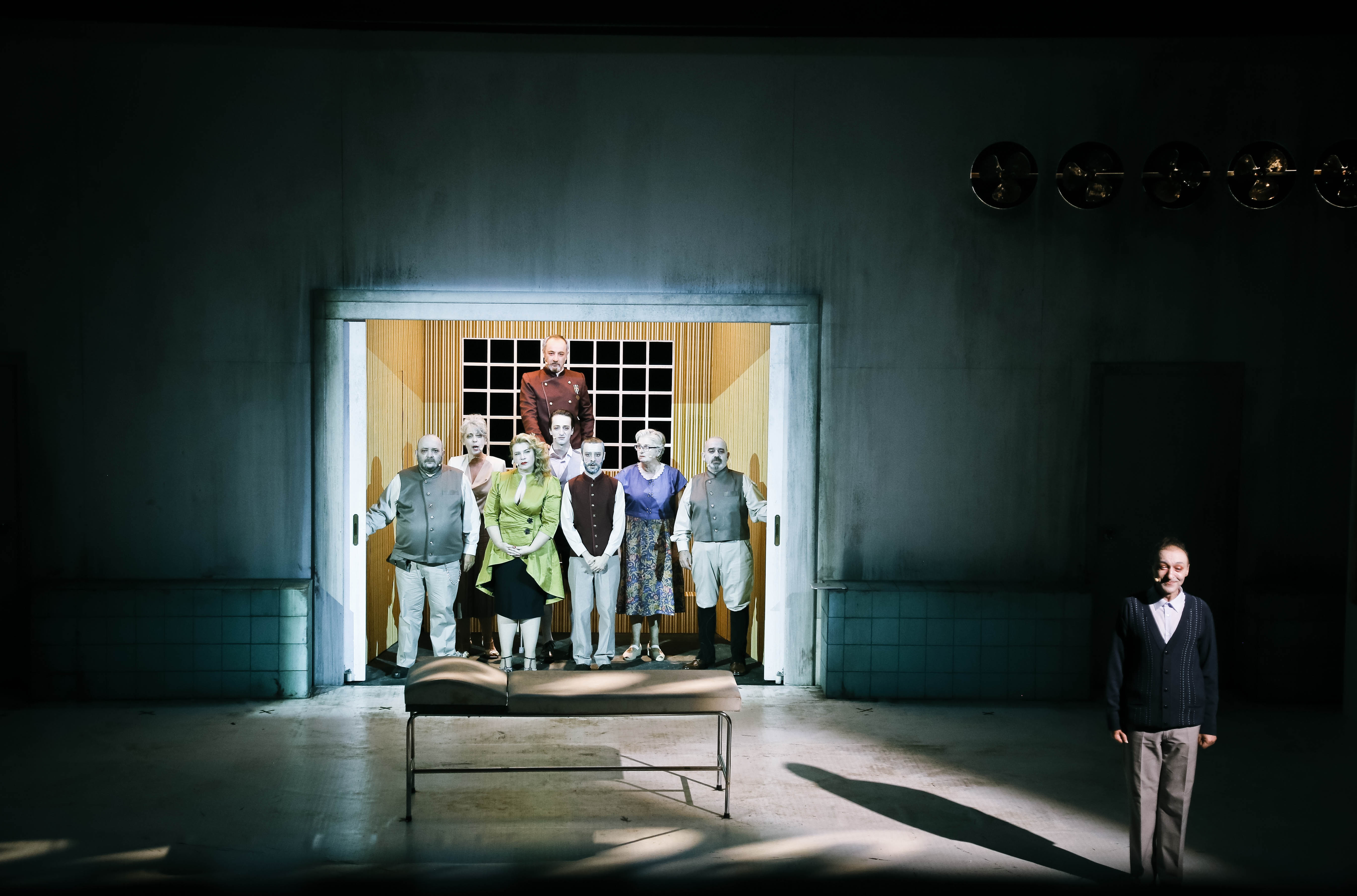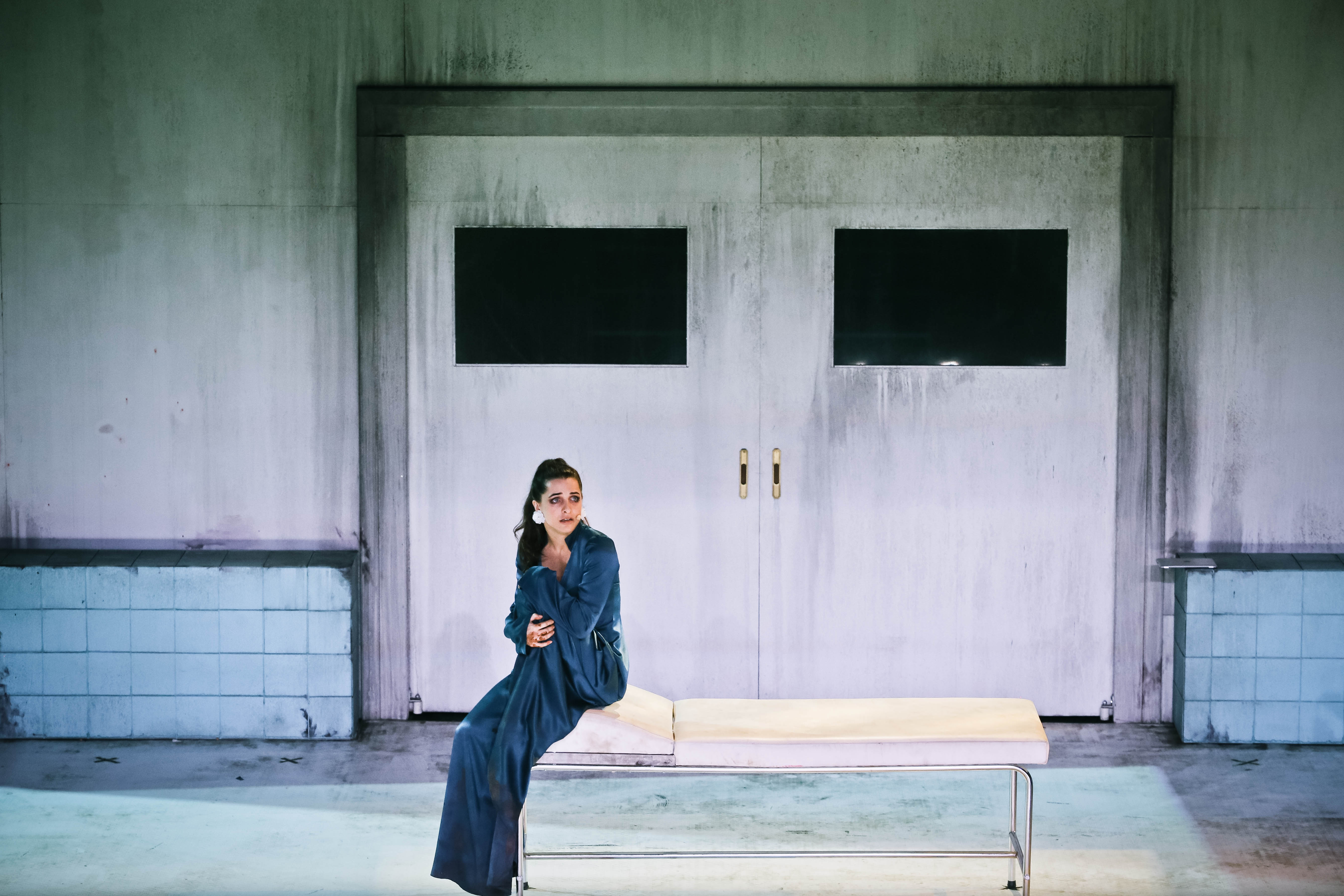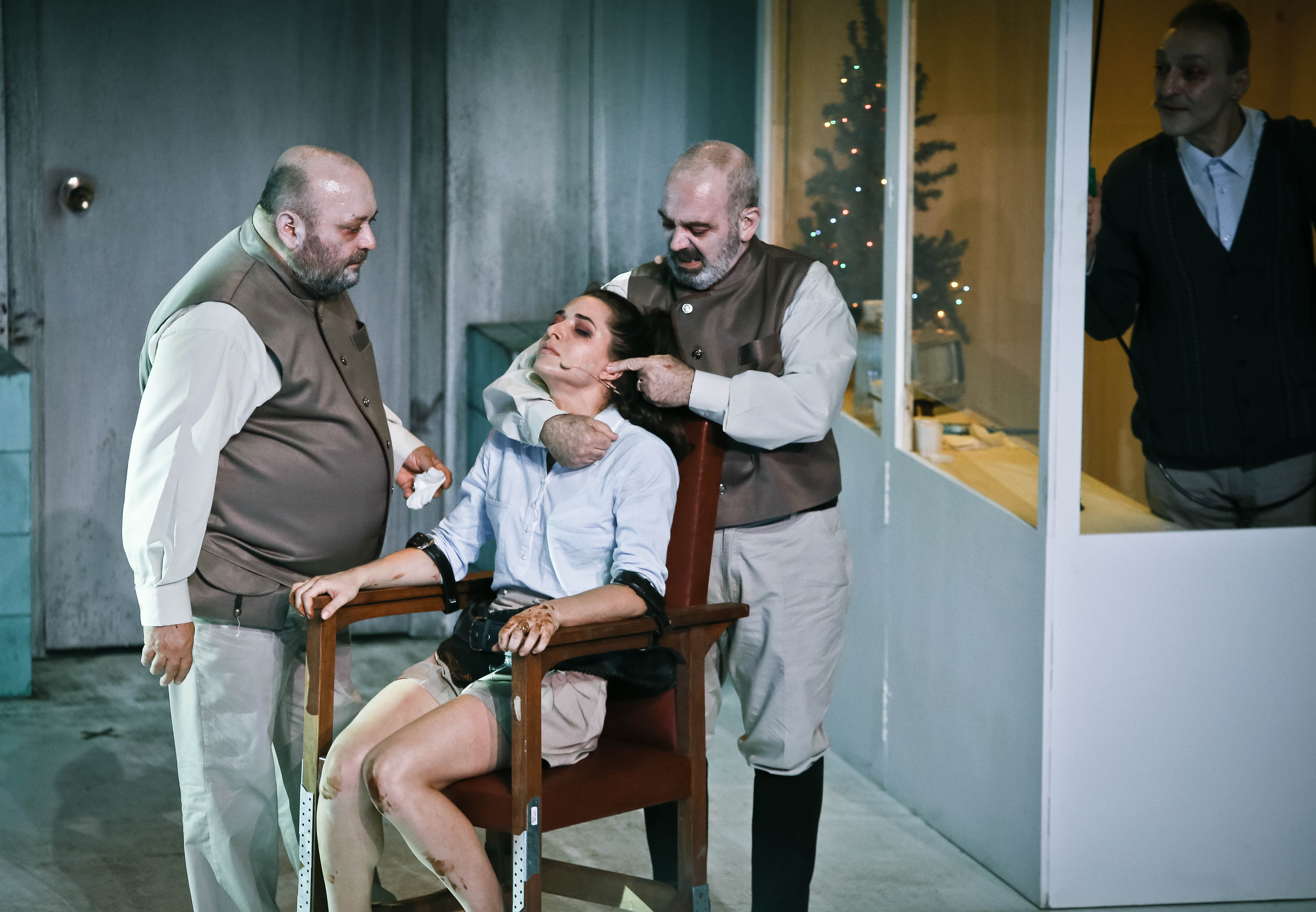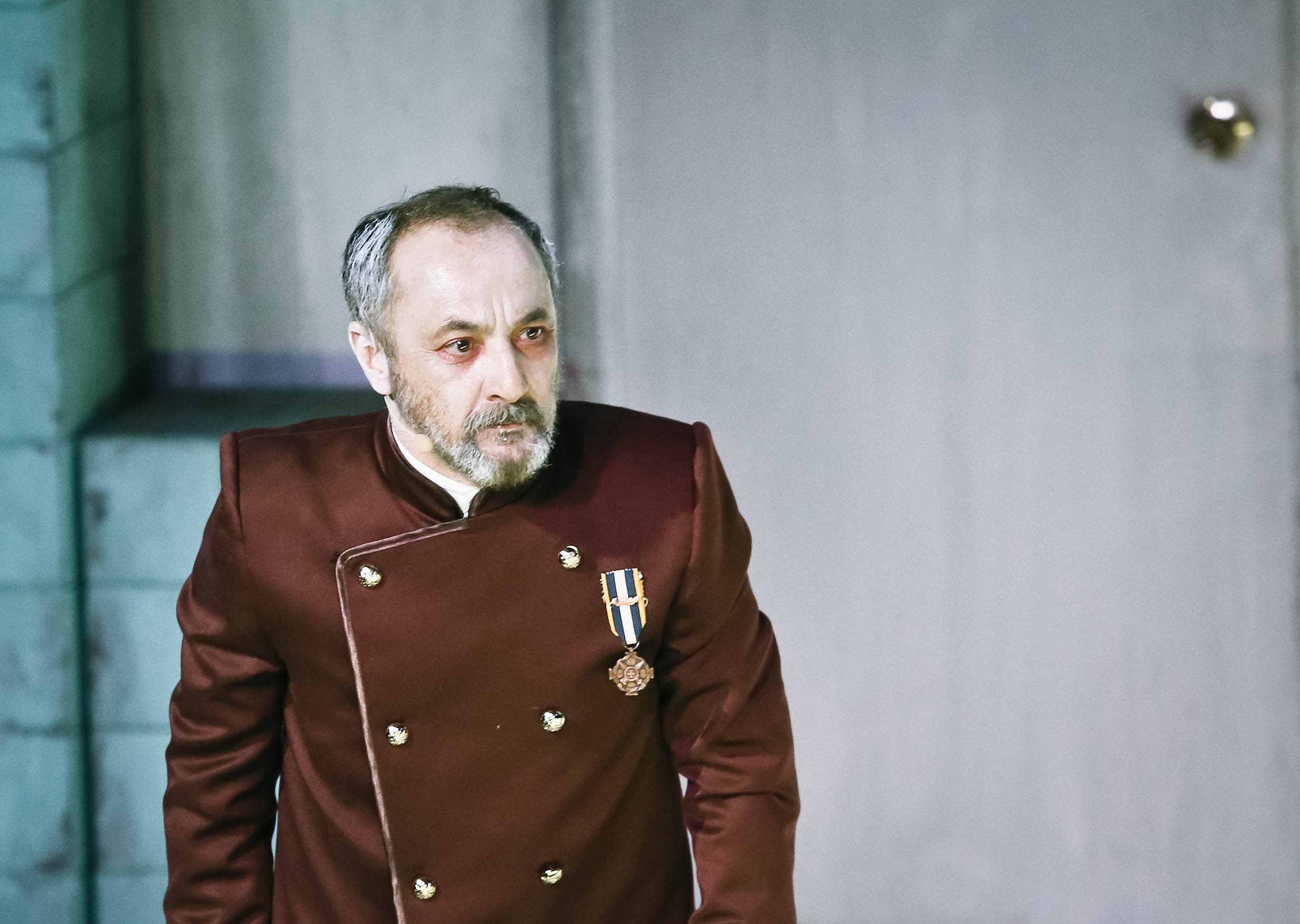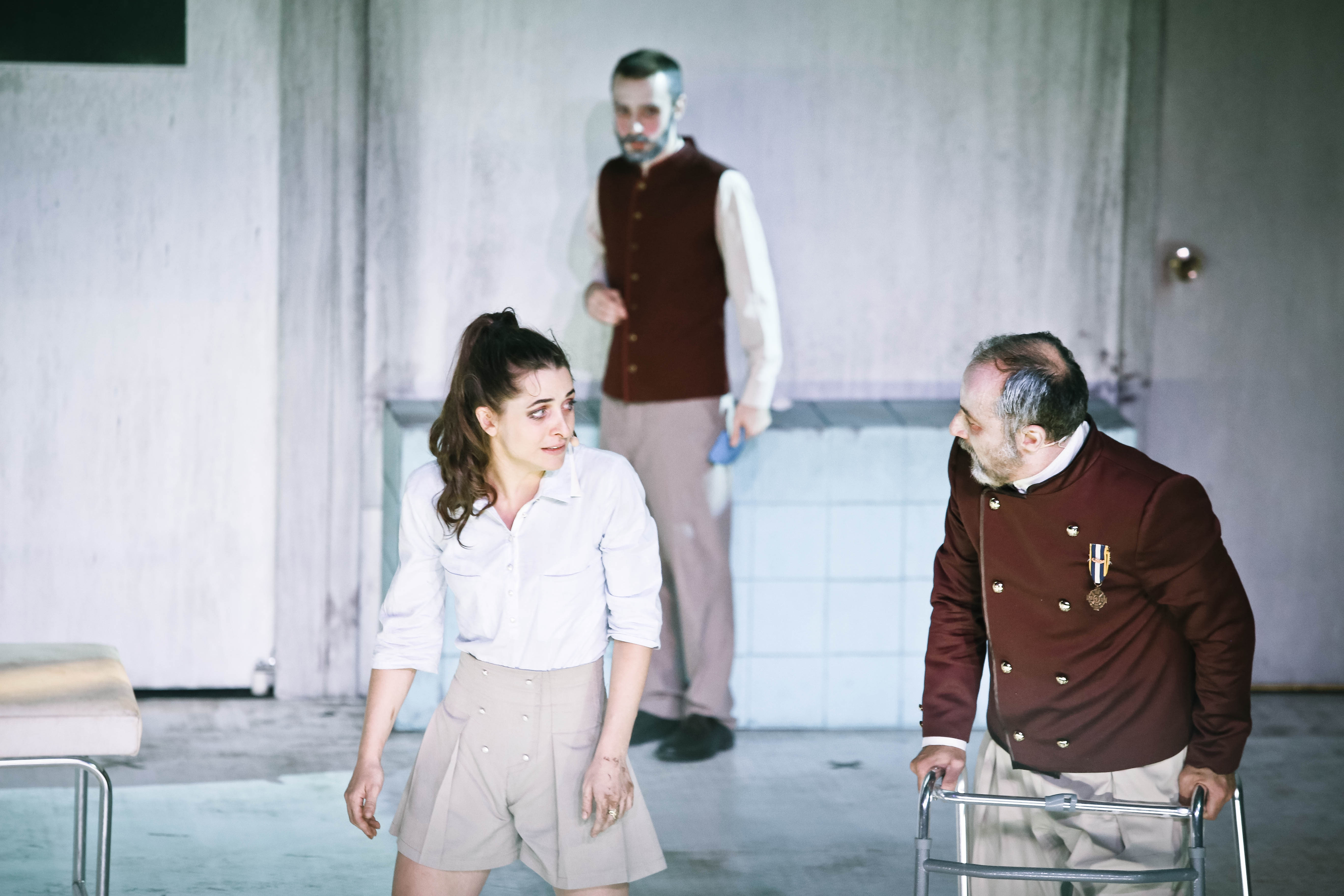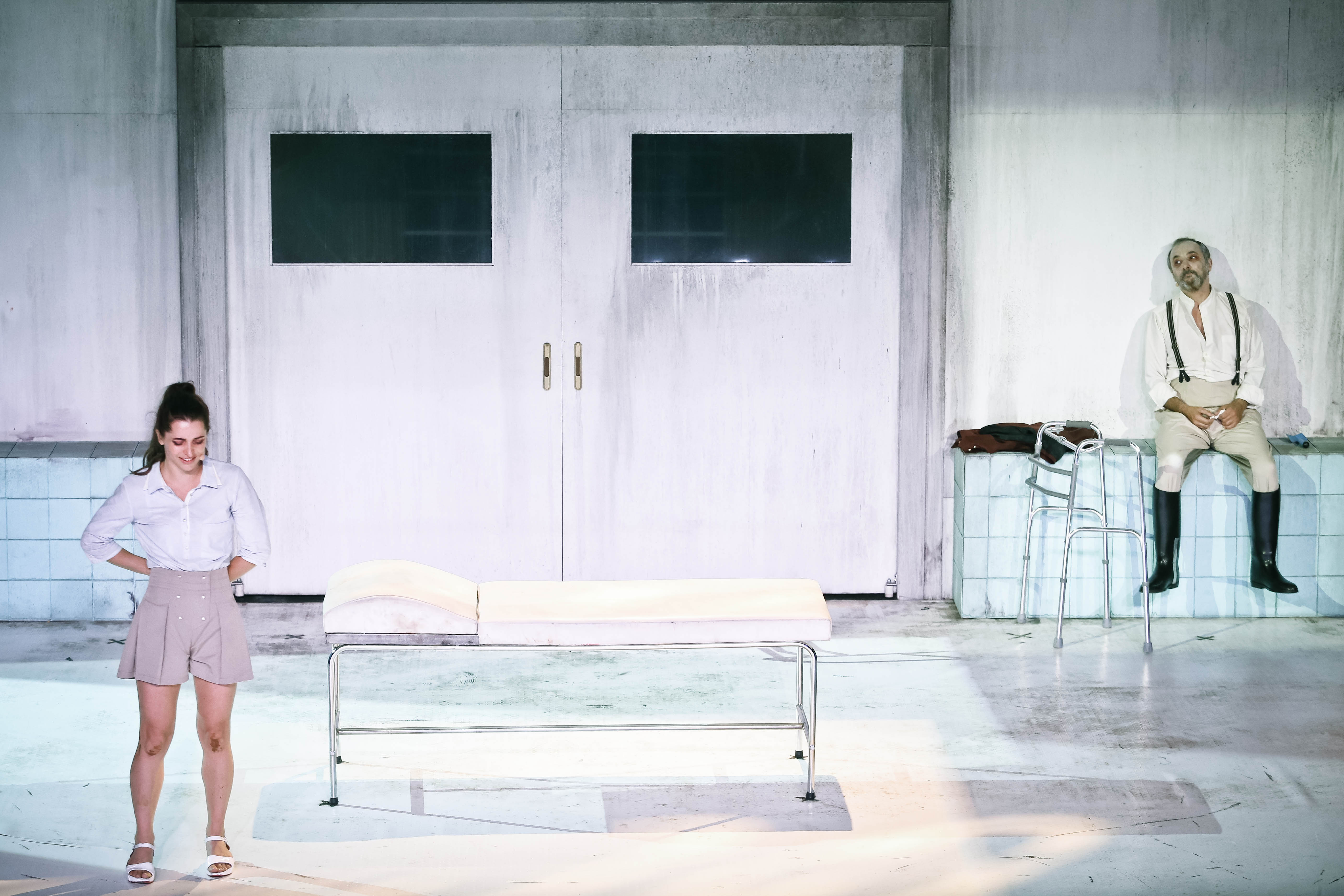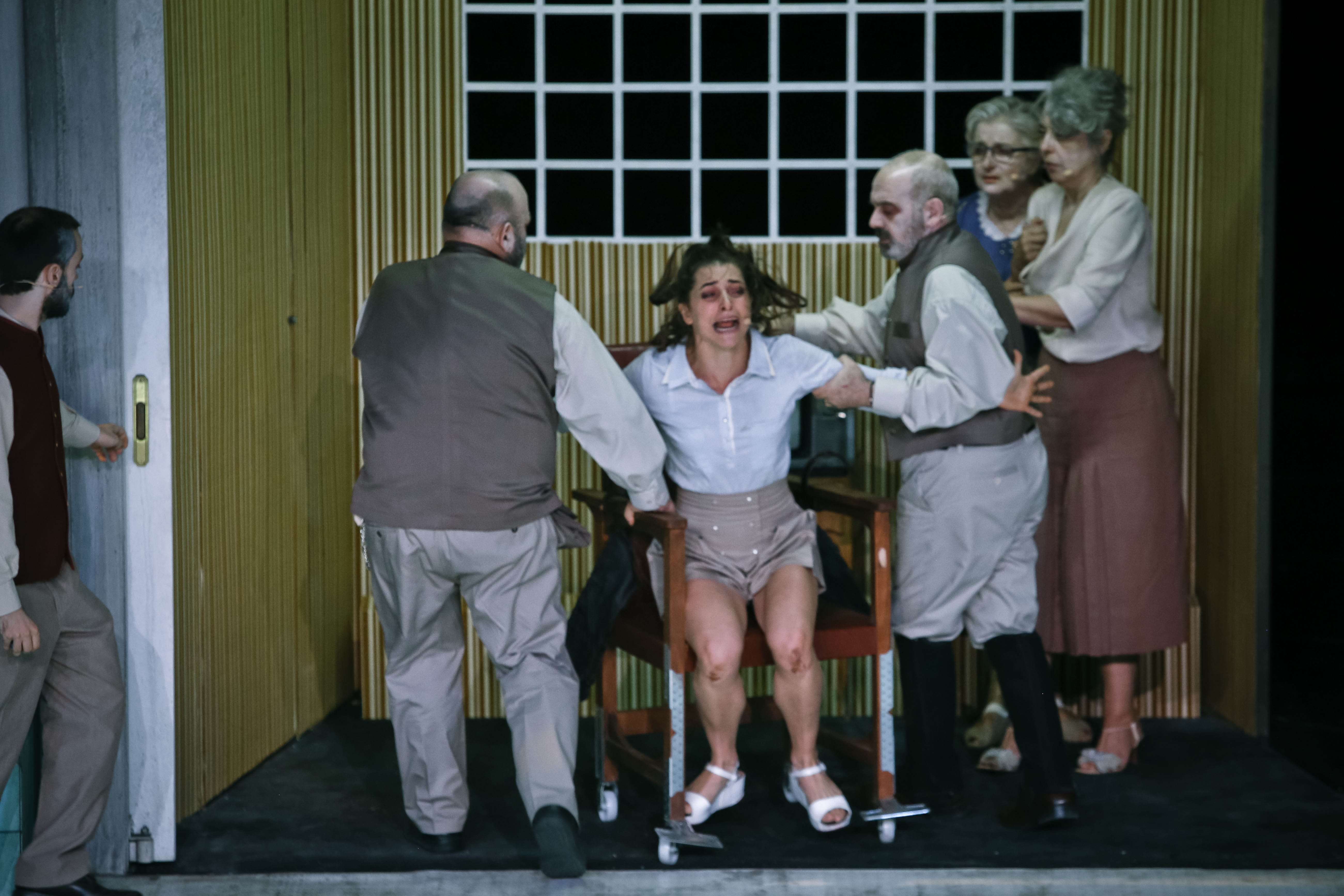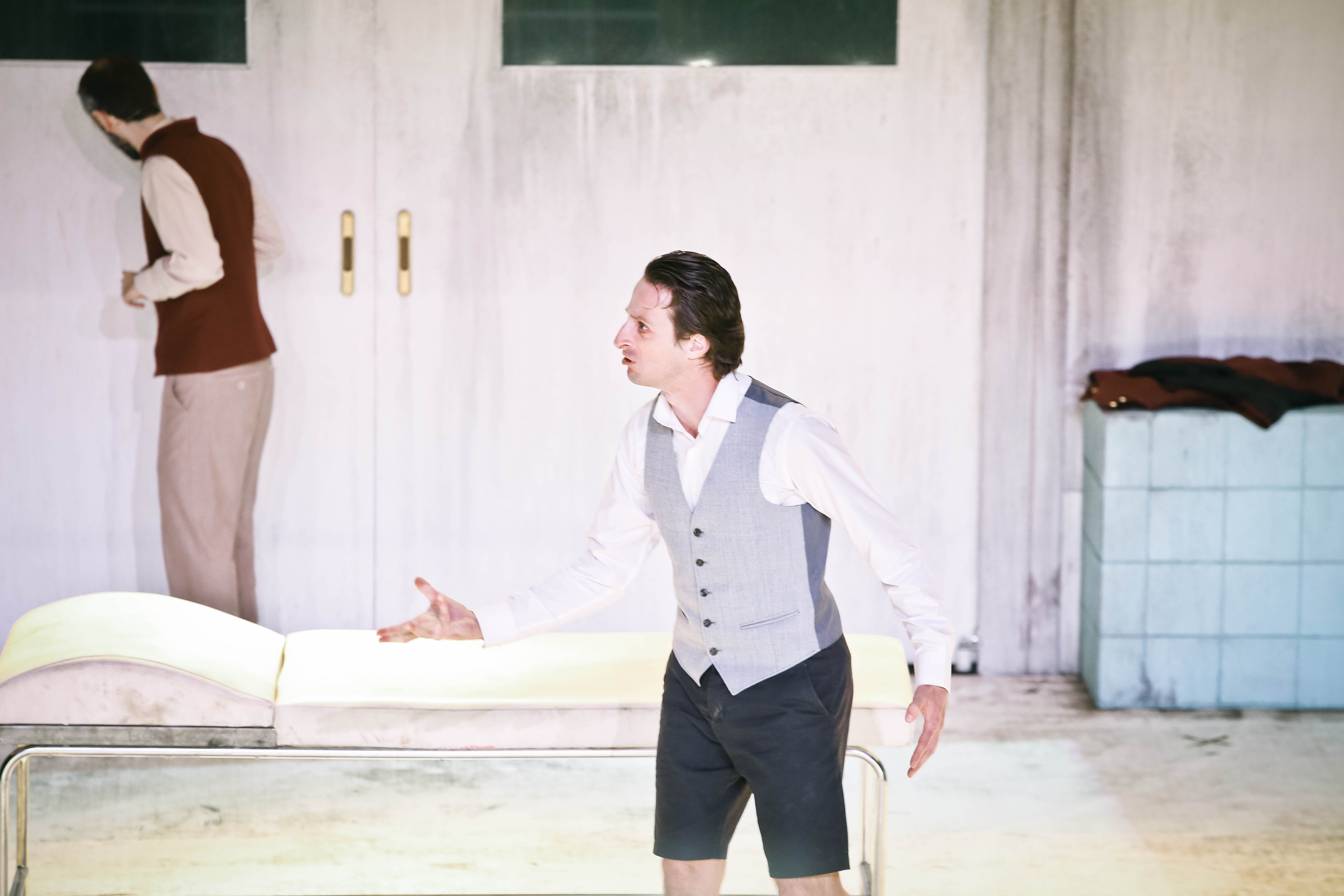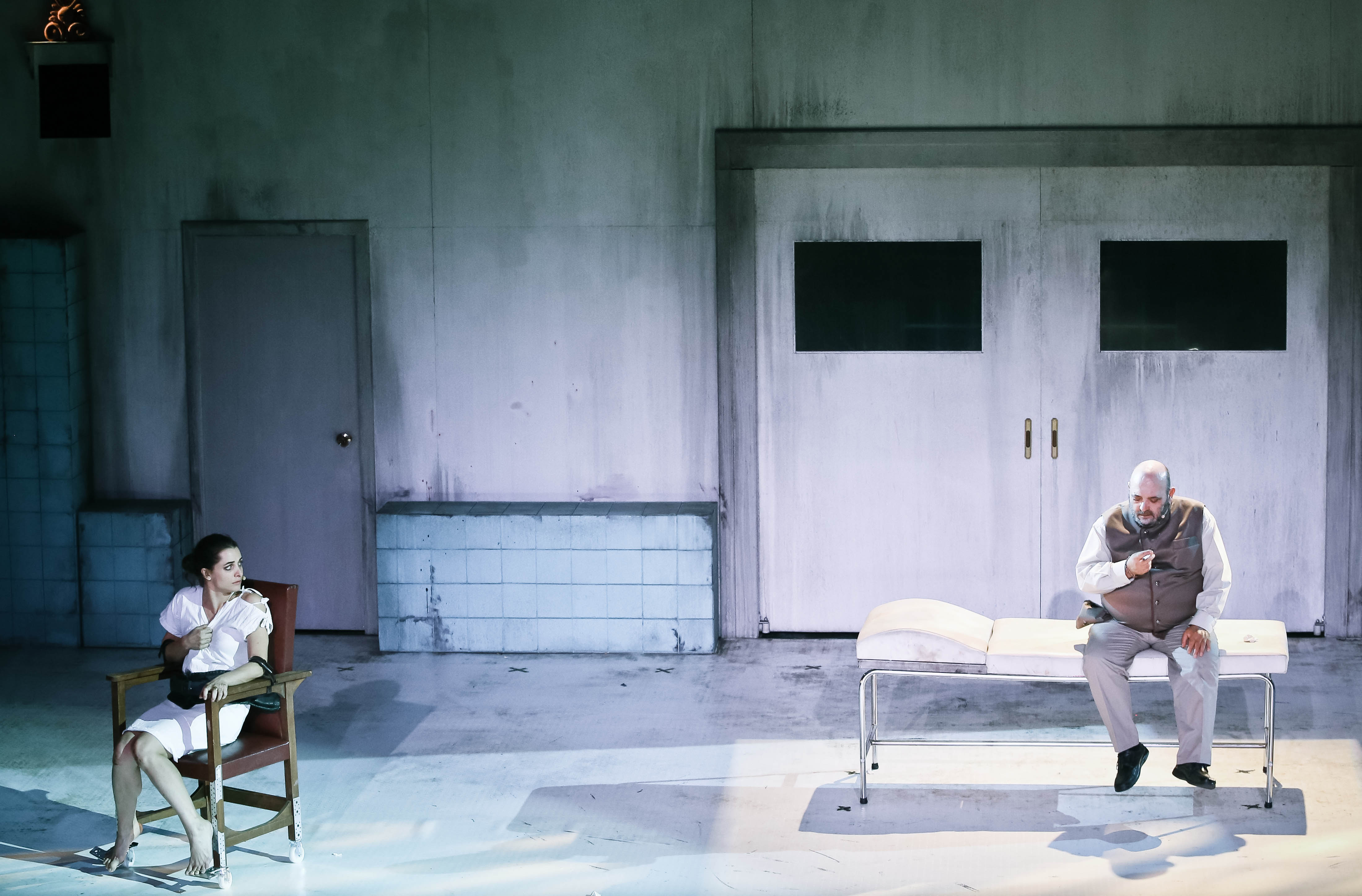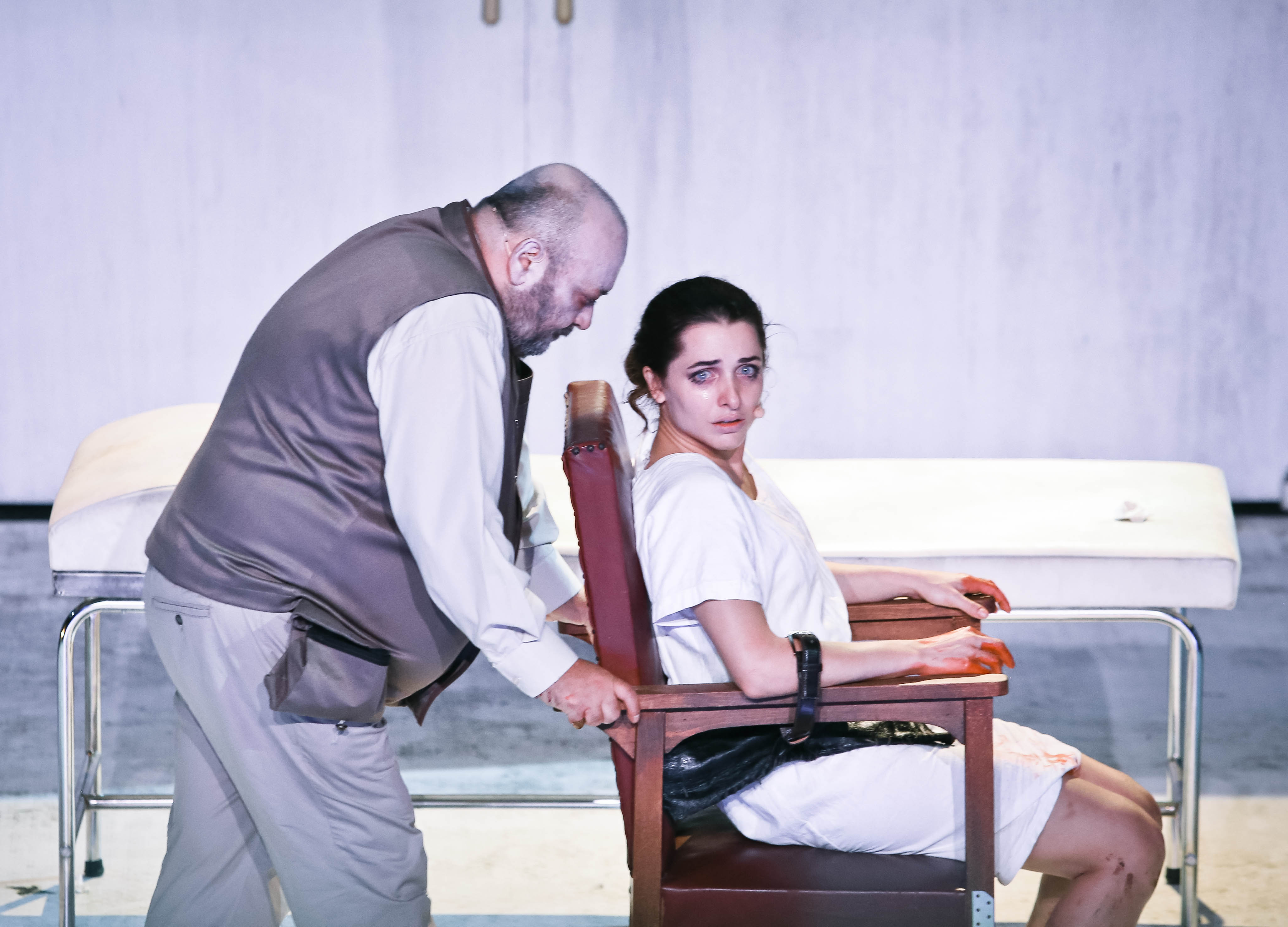Helen Eythimiou
Antigone
by Jean Anouilh
A key work in the contemporary theatre repertoire, written in 1942 during the idiosyncratic Nazi occupation of France, Anouilh’s Antigone is a metaphor for the individual and their struggle against an all-powerful, aged, autocratic state. Youth and old age, beauty and ugliness, power and weakness, justice and injustice are juxtaposed to reveal a fearful society awash with corruption and self-interest, a society back at square one.
In this shipwreck of a state in which the stench of Polynices’ corpse is used to bring the citizens into line, in which the dead are interchangeable, in which the “truth is what we do not tell”, Creon arrives as a saviour, says ‘yes’ to power and sets about “ruling people” as its humble servant. Antigone, herself the child of a sick society, rebels with the instinct of youth and buries her dead brother, saying ‘no’ to the “costly, dirty hope” on which power relies. In the end, alongside a Guard who has denied his very humanity, she falls apart—she no longer knows why she is dying. Unrepentant, Creon will continue to rule the state, the Guards will continue to drink and play cards. A modern old people’s home, a society which is waiting to die, a song that sings of heroic Eteocles and the voice of Antigone echoing through eternity, illuminating a different aspect of the tragic each time.
REX Theatre/Kotopouli Stage
- 21/07 until 22/07/2016 at 21:00
all events
Opera | Music | Theatre | grape | subset | Dance | Education | Αναβίωση | Classical music | Performance | Contemporary music | Contemporary Ancients | Premiere | Greek Debut
Ancient Theatre of Epidaurus | Little Theatre of Ancient Epidaurus | Peiraios 260 | Odeon of Herodes Atticus | Stavros Niarchos Foundation Cultural Center | REX Theatre/Kotopouli Stage | Lycabettus Theatre | Greek Art Theatre Karolos Koun | Ancient Theatre of Epidaurus | Exhibition Hall | Athens Conservatoire | Stathmos Theatre | Hellenic Cosmos Cultural Centre Pireos 254 Tavros
all venues

